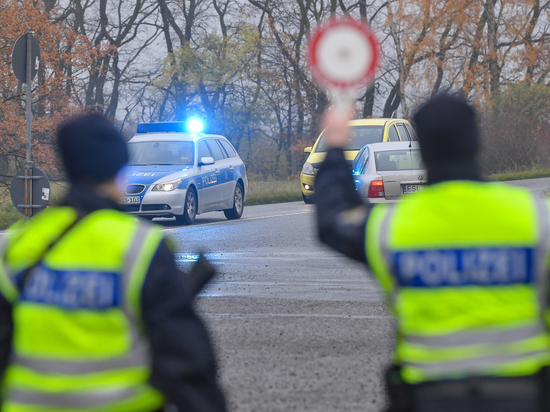Russophobia between the lines
The week in the Eurozone began with active calls from the Baltic shores to “accelerate the ban on the issuance of Schengen visas for all citizens of the Russian Federation.” And to do this even before the EU Foreign Ministers discuss this initiative in Prague on August 31. The countries that are most active in getting rid of Russians have already begun to act: last night Estonia closed the borders for Russians with an Estonian visa, Finland has been launching a “special visa regime” for holders of Russian passports since September 1.
We found out exactly how the Eurozone is being closed from Russians and what prospects this process has.

Photo: Global Look Press
Estonia today at midnight banned Russian citizens from entering its territory with Estonian visas — Schengen stamps issued by Estonian visa centers. The process began on July 15, when Russia, for its part, opened land borders, and through them Russian tourists and shuttles poured into the Baltic countries.
– They immediately started talking about tourists — they say, they don’t come to us anyway, but by bus to Tallinn airport, – says a resident of the border region of Estonia, who has relatives on the Russian side, – to the west. And then Western Europe, if anything, will make us extreme that they were given visas. Under this sauce, the people supported. Although personally it is inconvenient for me and my relatives. And in general, I think that ordinary tourists have nothing to do with it.
The Estonian Prime Minister, Mrs. Kallas, indeed, almost immediately after the opening of the Russian-Estonian land border, said that “visiting Europe is a privilege, not a human right” and even wrote a post about it in a social network: “Air travel from Russia is closed. This means that while the Schengen countries issue visas, Russia’s neighbors bear the burden (Finland, Estonia, Latvia are the only access points). It’s time to end tourism from Russia.” Which is what all European countries immediately called for.
But it was the “access points” that were the first to pick up the cry – the ex-Soviet Baltic republics, each on its own terms, since according to EU laws it is illegal to deprive access on the basis of citizenship. Latvia, for example, was openly going to cancel the visas and residence permits issued by itself, but Estonia got out of the situation more cunningly. As stated by herForeign Minister Urmas Reinsalu, the visas already issued will not be considered invalid, just “sanctions in the form of non-admission to Estonia will be applied to their holders.” The minister also recalled that Tallinn plans to “discuss this issue at the EU level and seek the introduction of pan-European sanctions against tourism from Russia.”
Finnish officials, having conferred “without ties” yesterday, made a decision and explained the “visa mechanism for Russians” approved as a result. Starting from September 1, 500 slots (time intervals) per day will be available in Finnish visa centers on the territory of the Russian Federation for Russian visa applications, of which only 20% (100 windows) are available for tourists, and the rest for those who have work, study, relatives and “humanitarian missions” in Finland – funerals or a visit to a dying man.
At the same time, Finnish diplomats clarify that “each visa application will be processed individually, and the time and result of processing, among other things, are affected by the specified purpose of the trip and a set of documents.” On average, after the introduction of restrictions — that is, from September 1 — the deadline for obtaining a Finnish Schengen visa will be about 5 months.”
– Now there are slots for submitting documents to Finnish visa centers for the first half of October, and they promise to issue a visa at the end of October, – explain the difference in the capital’s travel agency. – And from September 1, the visa will be issued in 5 months — that is, by April. But this, frankly speaking, is a mockery: all documents required for a visa have a maximum validity period of 3 months and during the “processing time” they, of course, will contradict the EU principles, since they will expire.
– It is better to immediately understand what the Finns want to say between the lines: you will not get a visa. At least not from us,” advises the visa intermediary. – But not because you are a Russian (this contradicts the principles of freedom and tolerance), but because you “individually” will find violations in the purpose of the trip or in the documents.
Poland also announced its intention to join the ban on the entry of all categories of Russians, not just tourists, into the EU on Wednesday. Warsaw, represented by its Foreign Minister, said at a meeting with its Lithuanian counterpart that “ideally, the ban should be a European-level decision that would simply cancel the validity of visas already issued to Russians, and everyone should stop issuing them.”
But in the western part of Europe, on the contrary, there are doubts. So the English-speaking observer William Nattrass, who works in Prague, said in an interview with the American press the day before that “the idea of banning entry to Europe for all Russians does not stand up to criticism and only highlights the inability of the EU to influence Putin,” and also looks more like a “cheap PR blow than practical assistance to Ukraine.”

